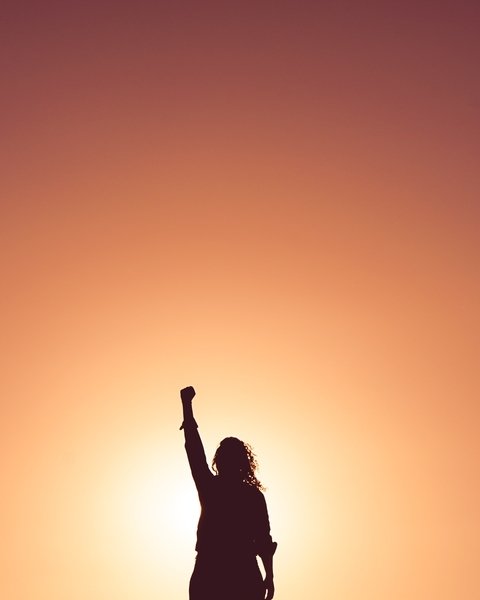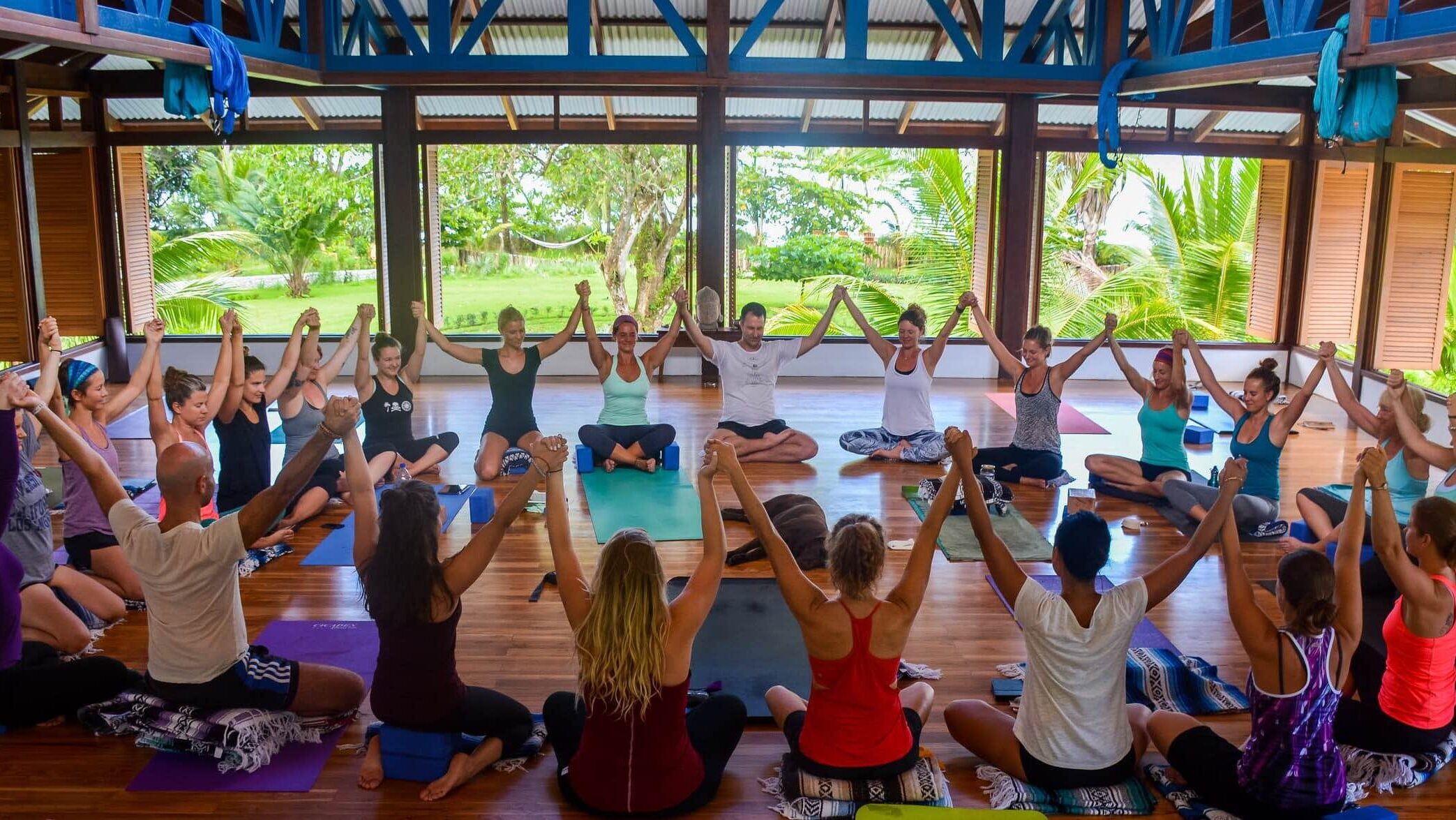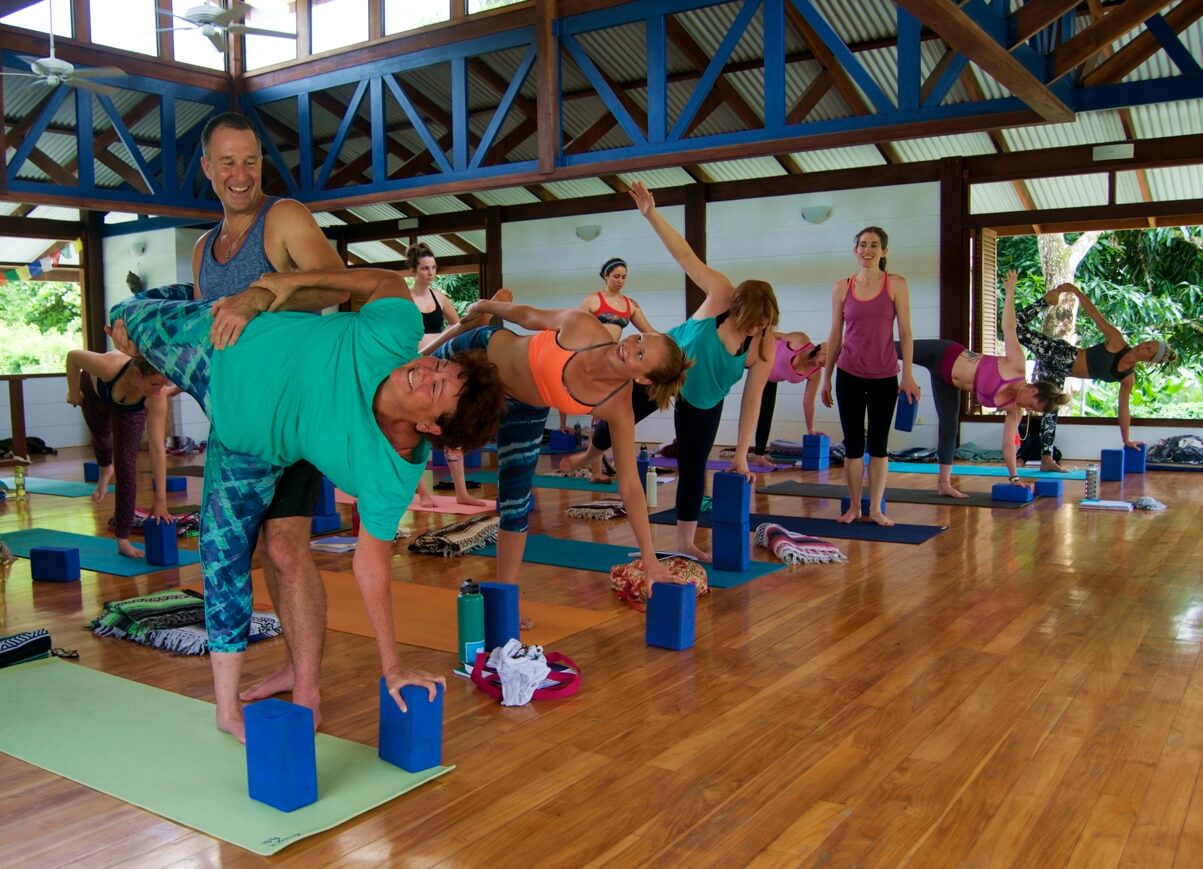When you think of empowerment, who or what comes to mind? I asked a few yoga friends, and this is what they said:
“Superman, the superman pose.”
“Autonomy”
“The ability to make a decision without restriction.”
“Leadership, confidence, representation.”
“Elizabeth Warren.”
“A person of privilege, someone with money.”
I took a moment, and I realized, these are all great representations….. of an empowered individual and the qualities associated with it.
But what about empowered action? What does that even look like?
How To Be Empowered

We focus on the personality of an empowered person and how they carry out their actions.
But what are the results?
Does it matter if the person succeeds in their intention or not?
Is acting in the pursuit of empowerment still empowered action, even if the results are desirable?
Or, can we call ourselves empowered individuals even if we don’t exercise any of our power?
I guess it’s fair to say that exemplifying empowerment is much more of a dynamic process than it is a one-word answer or a fixed definition.
So…
What does personal empowerment mean?

Personal empowerment is not about achieving a subjective emotion or an ideal state. Feeling empowered can mean you are confident and can make decisions. However, being an empowered individual by definition actually translates into “real-world evidence of our ability to have an impact on our relationships and social surroundings.”
Feeling empowered is excellent, but according to the above, what purpose does it serve, if you don’t do anything with it? We can receive all the recognition, and respect in the world and feel empowered all day long, but unless that translates into something actionable, that actually yields the results we desire – can we say we have attained true personal empowerment?
To give you a better understanding, imagine you are reading a self-help book, and it’s given you all the information and tools to deal with a situation at hand. Because unless you can turn that into action, and it leads to the actual, desired change, you are no more empowered than when we first started.

Exercise Your Empowerment
Exercising empowerment is a dynamic and interactive process that starts off with feeling empowered and having the confidence to carry out an action, and then looks like this…
Self-efficacy = initiating change = getting desired result = creating impact = empowerment
We attain and maintain empowerment by going through this process many times over, creating evidence of change, thus making an impact. According to American psychologists, Lauren Cattaneo & Aliya Chapman of George Mason University, this is empowerment in action.
Move away from feeling empowered to being empowered.

It might be too far fetched to say that only when we meet our intended results can we experience real personal empowerment. But it is true to say that initiating change and getting the results we desire does exemplify true empowerment within. It also contributes to our sense of self-efficacy. In essence, the very belief we need to initiate change in the first place.
So, action alone isn’t enough. Although it can contribute to our feelings of being empowered, it doesn’t do much for being an empowered person if there is no change in us, our relationships, or our social spheres.
Also, when we do create change, not all of our efforts will achieve the results we desire. Ultimately, how we respond to these undesirable results also has a direct correlation to our sense of empowerment and how we then show up in the world.
It’s a considerable feedback loop that is key to attaining and maintaining personal power.
Think back to the images of people who came to mind when I asked you to think of empowerment. Did they try but fail to create change, or were they people who actually created an impact on society?
Self-empowerment is a process. A dynamic process that requires us to continually fine craft and refine our efforts to get the results we want.
Complaining Your Way To Empowerment

If we wish to make empowered choices and create change in the outer world, we must build resilience to the challenges we face within.
Take complaining, for example.
Complaining gets a bad rep, and rightly so.
Most people complain mindlessly, which ultimately disempowers them.
We’re all guilty of it.
But know that there’s also an effective way to ‘complain’ that can actually lead to immense personal empowerment, here’s the difference.
So, how do you complain effectively?
Start by looking at what you are complaining about and why you are complaining.
People usually complain for several reasons, mainly as a way of relieving stress or because we think we can’t resolve the problem. It could also be part of our family and cultural upbringing, or it could be the means of getting what we want.
These are prime examples of REACTING due to low self-efficacy, thus an inability to create a real change in the situation at hand.
This is how we disempower ourselves.
When we can’t see any other option, we fall prey to complaining as a way to vent and release in the hopes of, at least, feeling better about it.
Consequently, when we complain, we actually empower others to complain too. We open the gates for others to agree with our very subjective experience. It’s an uncomfortable position to be in, and you can see why no one likes to be around a complainer.
Not only are you affecting others with your complaining, but you are also rewiring your brain to form a pretty unhealthy habit.
Complaining is contagious!
Complaining is contagious in the brain. Neurons that fire together wire together.

Complaining rewires your brain for negativity and here’s how.
Whenever we think of a thought or an idea, whether it’s positive or negative, the nerve cells in our brain form a bridge between each other to connect these thoughts.
So the next time you create a similar thought or think of the same thing, your brain, being the efficient organ that it is will expedite the passage of information so that you can access your previous thoughts and emotions.
It’s all about making your life easier.
So, if you complained last week about something going wrong, and you think about it again today, you are wired to respond in the exact same way… as a complaint, no matter the difference in the situation.
Complaining is disempowered action.
Complaining to others in the hopes of getting what we want without putting in the work is a disempowered action. When you resign to responding in this way, you effectively are giving your power away.
To whom I don’t know.
But I do know that nobody has the authority to create a life for you but you. And nobody is going to guide you to your personal power. Nobody has that privilege. It must come from you!
Here are some things you can do to resist complaining and hold on to your personal power while complaining effectively.
When you complain, how do you respond when (nothing changes) you are not heard, or nothing changes?
Do you stay in the same relationship, job, or situation you are in or repeat the same activity or behavior? Complaining but continuing to stay when there is no change is a sign of low self-esteem.
Inevitably inviting more opportunity to complain.
If someone is bothering you, instead of complaining to someone who is not involved, complain directly with the person in question. If this fills you with a little terror, then perhaps you enjoy complaining as a pastime more than you desire to change anything.
Before complaining about something, ask yourself the following questions;
- Do I have a choice in the matter?
- Is there something I am not seeing?
- Does my life depend on it?
Are you asking for what you want? Do you even know what you want? Complaining gives little to no solutions
Learn to accept that things won’t change.
Complaining can act as a stress reliever at times, especially when we know change is not possible. Emotions build up with nowhere to go.
Instead of resigning to an activity that feeds negativity, take a step back and assess your reality.
There are things in life that we have no control over; generally, the actions of others and these have nothing to do with us. We get lied to, cheated on, abused all the time, and one essential way of dealing with things we cannot change is to make it a meaningful experience. The worst things to happen to us usually end up being fundamental to our personal growth.
So ask yourself these questions:
- What is this teaching me?
- How has this made me a better person?
- How can I grow in this situation?
“When we can no longer change a situation, we are challenged to change ourselves.” – Viktor Frankl
Having awareness at the point of a complaint means you have two options – one, to succumb to powerlessness or two, use your power as an opportunity for growth.
Complaining will never manifest a better situation, so I encourage you to recognize the power you have and use it for good.
About The Author
Fai Fetwi has been exploring the depth of her being for most of her life. First, as an artist, then a teacher, and now a writer. She is intuitively and creatively directing an experience that allows her to be in her full expression, always.
Fai also works closely with others to help actualize their vision aesthetically and beautifully. She is the founder of Wildfai Creative, an agency specializing in web design, writing, and virtual assistance for conscious soulpreneurs.
You can usually find her in the middle of the jungle in an exotic location, self-reflecting, writing, and drinking excessive amounts of coffee.
You can read her reflections on being human at www.wildfai.com.
Book/Inquire Now
Got pain? This will help you!
YOU DESERVE TO LIVE PAIN-FREE...
Receive 7 short, simple, and effective practices to alleviate knee, hip, low back, neck, shoulder pain, and more!
All you need is 5 minutes per lesson and it's FREE!
This revolutionary approach to yoga is new, and no one else is teaching this! Since I created Applied Yoga Anatomy + Muscle Activation™ and started teaching it consistently, I've witnessed students heal long-standing injuries, access yoga postures they never thought possible, and tell me over and over again how their body just feels better.
I hope you'll join me on this journey!
~Yogi Aaron
Is Yoga Teacher Training Right For Me?
We Created This FREE 5 Part Series So You Can Get All The Information To Make The Right Choice.
In this series, you will learn:
-
- Am I a candidate for yoga teacher training??
-
- What will I learn in a YTT?
-
- Do I need to have a perfect downward dog to attend YTT?
14-Day 200-Hour Yoga Teacher Training in Costa Rica
If you are looking for a 14-day 200 hour Yoga Teacher Training Costa Rica Immersion, you have landed in the right place. Join the next one!
300-Hour, 28-Day Yoga Teacher Training
Do You Feel Called To Something Greater?
This 300-Hour Yoga Teacher Training immersion training at Blue Osa will immerse you in yoga for one month.
You will have the specific transformational skills and yogic practices you need in order to connect with your higher purpose.
And more! You will be able to offer these transformative skills to others!




